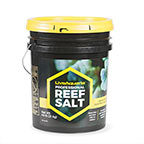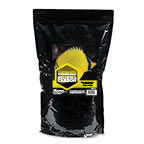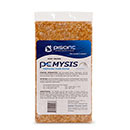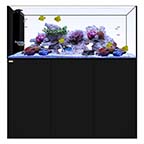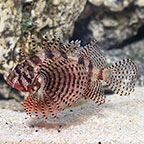Glass Eye Squirrelfish
(Heteropriacanthus cruentatus)

Please Note: Due to variations within species, your item may not look identical to the image provided. Approximate size range may also vary between individual specimen.
Please Note: Due to variations within species, your item may not look identical to the image provided. Approximate size range may also vary between individual specimen.
Glass Eye Squirrelfish
(Heteropriacanthus cruentatus)
Additional locales and sizes may be available!
Additional locales and sizes may be available! Email me when availableQuick Stats
Care Level
Moderate
Temperament
Peaceful
Color Form
Red, Tan
Diet
Carnivore
Reef Compatible
With Caution
Water Conditions
sg 1.020-1.025, 72-78° F, dKH 8-12, pH 8.1-8.4
Max. Size
1'
Family
Priacanthidae
Minimum Tank Size
125 gallons
Compatibility
View Chart
What do these Quick Stats mean? Click here for more information
Care Level
Moderate
Temperament
Peaceful
Color Form
Red, Tan
Diet
Carnivore
Reef Compatible
With Caution
Water Conditions
sg 1.020-1.025, 72-78° F, dKH 8-12, pH 8.1-8.4
Max. Size
1'
Family
Priacanthidae
Minimum Tank Size
125 gallons
Compatibility
View Chart
What do these Quick Stats mean? Click here for more information
Overview
The color of the Glass Eye Squirrelfish, also called the Dusky-finned Bullseye, changes through its life. Unlike many other fish, this fish actually becomes brighter in color as it ages. As a juvenile, the body and fins are covered in brown to red patches. With maturation the coloration changes to a bright red.
A 125 gallon or larger aquarium with plenty of live rock and room to swim is needed. A small group is suitable as long as there are adequate hiding places and space in the aquarium. It is a nocturnal fish, hiding while the lights are on and waiting for the cover of darkness to swim around in search of food. It will eat invertebrates such as worms (including fireworms), crustaceans, and serpent stars.
When first introduced into the aquarium, live saltwater feeder shrimp should be used to entice this fish to eat. Its meals should vary between live feeder shrimps, freeze-dried shrimps, and chopped marine meats that will move in the water column.
Approximate Purchase Size: Small 1 1/2" to 2" Medium 2" - 3" Large 3" - 4"




